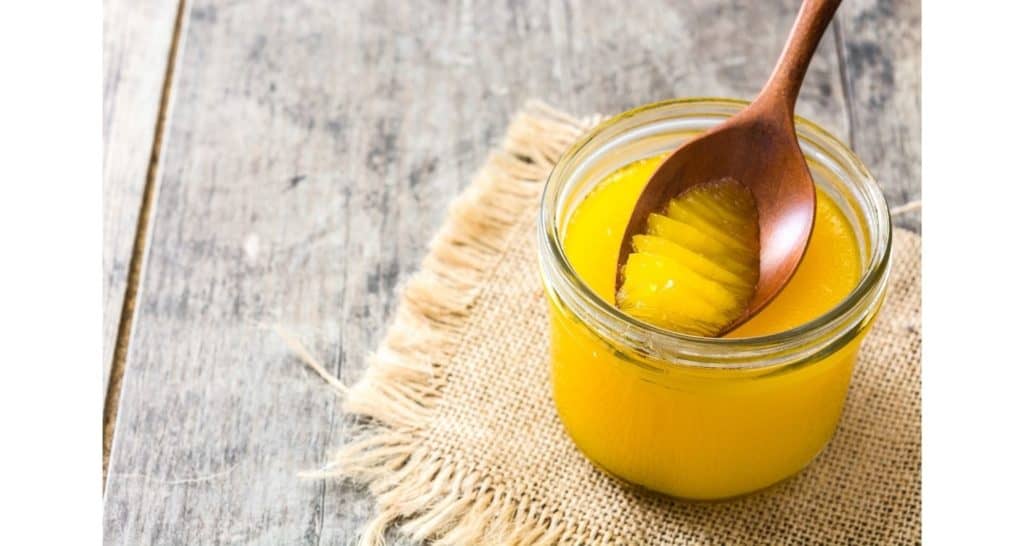If you’re not using ghee in your kitchen, you’re missing out big time. Ghee might just seem like clarified butter, but it’s much more than that. Although it’s an Indian specialty, it’s gaining worldwide recognition.
Today we’re telling you all about this famous ingredient, its origin, health benefits and uses. We’ll also tell you how to store it properly, answering one of the most common questions we get:
Does ghee need to be refrigerated?
Ghee does not need to be refrigerated. Ghee can be stored in the pantry for months as long as it’s protected from humidity in an air-tight container. Once opened, ghee can be stored in the refrigerator to extend its shelf life especially if its beyond three months.
However, a note in The Times of India mentioned that ghee should be used within a year of opening the jar.
Now, let’s light up the fire and heat some pots and pans because this will be an informative and delicious ride!
What Is Ghee, anyway? And why should you care?
Cooking with butter is lovely. The moment the pale golden butter melts in your pan, your house is filled with the most enticing aromas. There’s a problem, though; butter has a very low smoke point; its solids burn at 150°C (250°F), which is quite low. Keep in mind we often cook at 200°C (392°F).

Here’s where ghee comes in. To make ghee, you must melt and simmer butter to allow water to evaporate and to remove all the solids and impurities.
The resulting clarified butter has a stunning smoke point of 250°C (482°F). The best part? Ghee is not only deliciously buttery, but it also has the loveliest nutty flavors.
Best Uses For Ghee
Ghee’s high smoke point, surpassing most cooking oils, is ideal for cooking everything from sauteing veggies to frying potatoes, from searing a steak to putting together a colorful stir-fry.
Ghee is pure fat, so you can use it as your go-to cooking oil, and since it won’t burn easily, you won’t get any of those nasty and harmful by-product chemicals released from burned grain oil.
Another significant benefit of ghee is that people with lactose intolerance can enjoy it. The milk sugar lactose and the milk protein casein are removed in the clarification process.
How To Store Ghee?
At room temperature, butter can go bad within weeks, but that’s not the case with ghee. This buttery golden oil has little to no water, and bacteria need moisture to thrive. This means you won’t see your ghee going bad anytime soon.
Does ghee need to be refrigerated?
Ghee does not need to be refrigerated. Ghee can be stored in the pantry for months as long as it’s protected from humidity in an air-tight container. Once opened, ghee can be stored in the refrigerator to extend its shelf life especially if its beyond three months. However, a note in The Times of India mentioned that ghee should be used within a year of opening the jar.
Of course, once you discover ghee’s versatility, you’ll be using it often, meaning no jar will last more than a few weeks.
Make Ghee Part of Your Life
Ghee is not only versatile, shelf-stable and delicious. It’s super trendy too, so hop on the ghee train today, and start infusing all your food with its lovely flavors and aroma.
There’s more. Making ghee at home is easier than you think. So, there’s no excuse for not making ghee part of your life.

